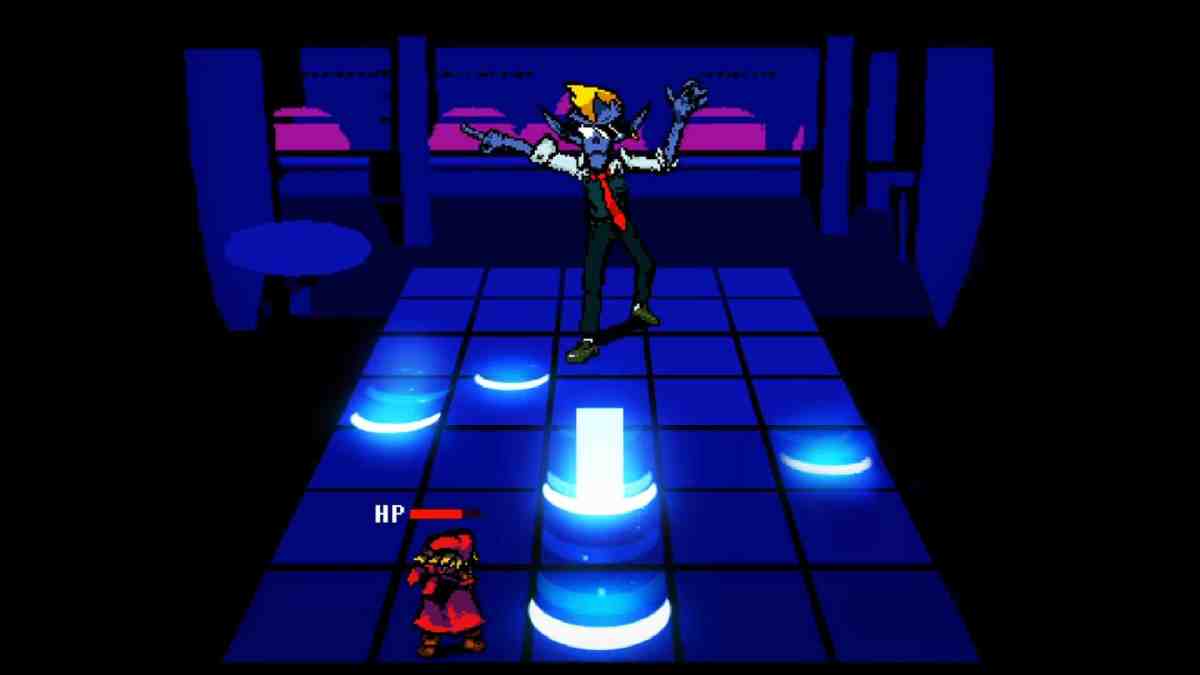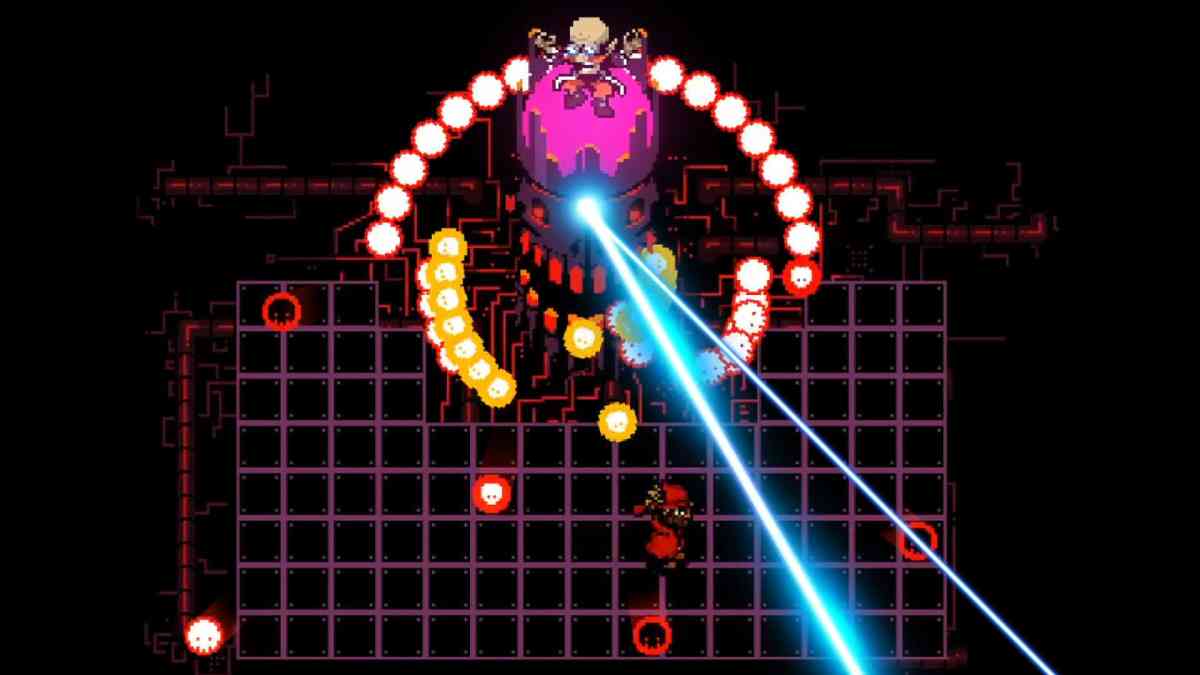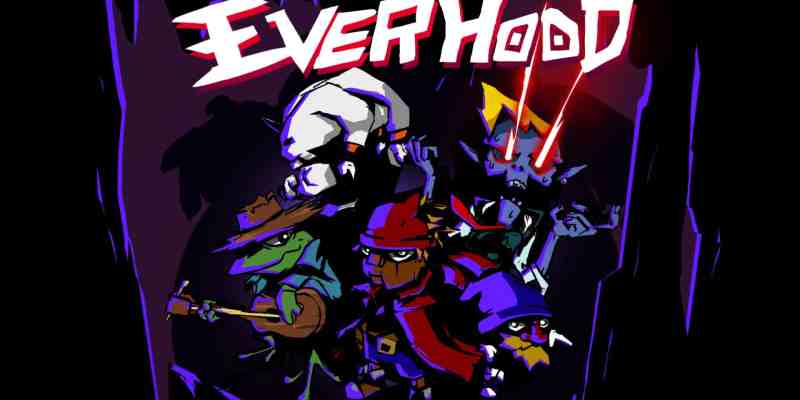The popularity of Undertale really opened the doors for more unconventional RPGs to flourish. Gone was the need for traditional combat or a hundred hours of content to be taken seriously — as long as the game has an interesting hook and an adventurous spirit, the norms of the genre no longer matter. Everhood, full title Everhood: An Ineffable Tale of the Inexpressible Divine Moments of Truth, certainly fits the bill with quirky characters, a unique combat system, and a killer soundtrack. However, unbalanced difficulty and inconsistent writing prevent the game from reaching the lofty heights of its aspirations.
Everhood follows the journey of Red, a mute wooden doll whose arm was stolen while he was resting in a forest. He explores a land full of tiny pocket dimensions as he tries to retrieve his limb, befriending many strange creatures along the way. Something is off about this land, however, a place where even the most important memories fade quickly. A presence in the back of Red’s mind does not want his body to be restored, for the last time he was whole terrible things happened. As his goal draws ever closer, the perception of whether Red’s decisions are right or wrong becomes increasingly blurred.
A trait the various inhabitants of Everhood share is a love of dance. Whether it is in greeting or to fight, nearly every character in the game is ready to face Red in a musical showdown. Battles take place in a five-lane screen reminiscent of Guitar Hero. Unlike the purveyor of plastic guitars, however, here the player is avoiding the notes, dodging left and right and jumping over them. A jump is slightly slower than a dodge, so the right move at the right time is incredibly important. Later on in the game, Red gains the power to absorb two notes of the same color and throw them back at the enemy, adding another level of complexity.
This combat system is creative, varied, and utterly confusing. As someone versed in rhythm games, I found moving off the beat really hard to get my head around. Indeed, moving in time with the music is a great way to get yourself killed. The experience instead is more like a bullet hell, all precisely timed dodging amongst an explosive wall of color. Bullet hells are a genre I can pretty conclusively say I suck at, and I quickly tumbled down the difficulty levels from hard (the intended experience) to easy. Everhood‘s problem, however, is that easy is not much easier than hard. The note pattern stays exactly the same between the different difficulty levels, the player’s health the only aspect changed. This even holds true for story mode, which I switched to after spending hours stuck on the final boss. I never felt that I got the hang of combat, instead just spending my time desperately twitching around against a wall of light.
The aggressive difficulty could be mitigated in several ways. Different note patterns for different difficulties would be a big improvement: I would rather master a song with fewer notes than get dragged through a tough encounter with my excessive health. Unique note patterns would also be beneficial for players on the other end of the skill spectrum, giving them a tailor-made challenge. The lane for the notes is really short, giving players only a moment between seeing a note and reacting to it. The top half of the screen is instead dedicated to the opposing character model, which does move in different ways depending on the attack but is certainly less clear than seeing the notes themselves. A latency check would also be a useful addition — every millisecond matters.

If the combat system is something you click with, Everhood does offer a great deal of variety. Many battles have their own gimmick, such as jumping on springs to avoid an invincible spider monster, the screen distorting into a glitchy haze, or the entire track flipping upside down. I was particularly impressed with the minecart level, which added buttons to either side of the screen that must be pressed to propel the cart forward. This small change forced me to learn the entire bullet pattern of the song, rather than darting back and forth between two lanes. A few too many songs are reused in the second half of the game, but the inventiveness of the final songs balance things out.
With Everhood‘s long subtitle and the presence of good and bad playthroughs, I was expecting the game to have a thoughtful story, perhaps abstract or introspective. While certain interesting ideas are explored right at the very end, the majority of the experience is shallow, full of characters too busy telling jokes to advance the plot. You are clearly supposed to care about these characters, but only one has any meaningful time with the protagonist.
The game does have a handful of nice character moments — playing video games with a sneezy vampire, being awarded a license to use very long planks by the slime brothers, a Dungeons & Dragons campaign lead by a slightly deranged green mage — but the rest make little to no impact at all. The cast is large, with 30 people to track down in the second half of the story. The script is also littered with typos, which makes villains hard to take seriously when they sound like a hastily written Reddit post.

I feel like I am being overly harsh on Everhood, which I think is due to the game being so close to the type of experience I love. The art is amazing: lovely SNES-style sprites for the overworld and dramatic lighting effects in the background of the battles. The soundtrack has everything a rhythm game should, with a strong bass line running through all different styles of music. Multiple endings occur depending on how you play, making choices truly matter. The combat system is creative, adding new features frequently. But when you do not enjoy a game’s combat and the story falls flat, no amount of style can save it.
While Everhood did not do much for me, the game is building a strong community. Custom battles add user-created songs to the game, and the range already present is impressive. Plenty of content exists past the main campaign: For the true masochists, a bunch of extremely difficult fights lurk in the New Game+ mode, presenting a challenge for even the most dexterous of players.
If Everhood sounds like it might be your thing, I encourage you to try out the demo. Should you be someone who can vibe with off-beat rhythm gaming, many epic battles await you in the full game.
